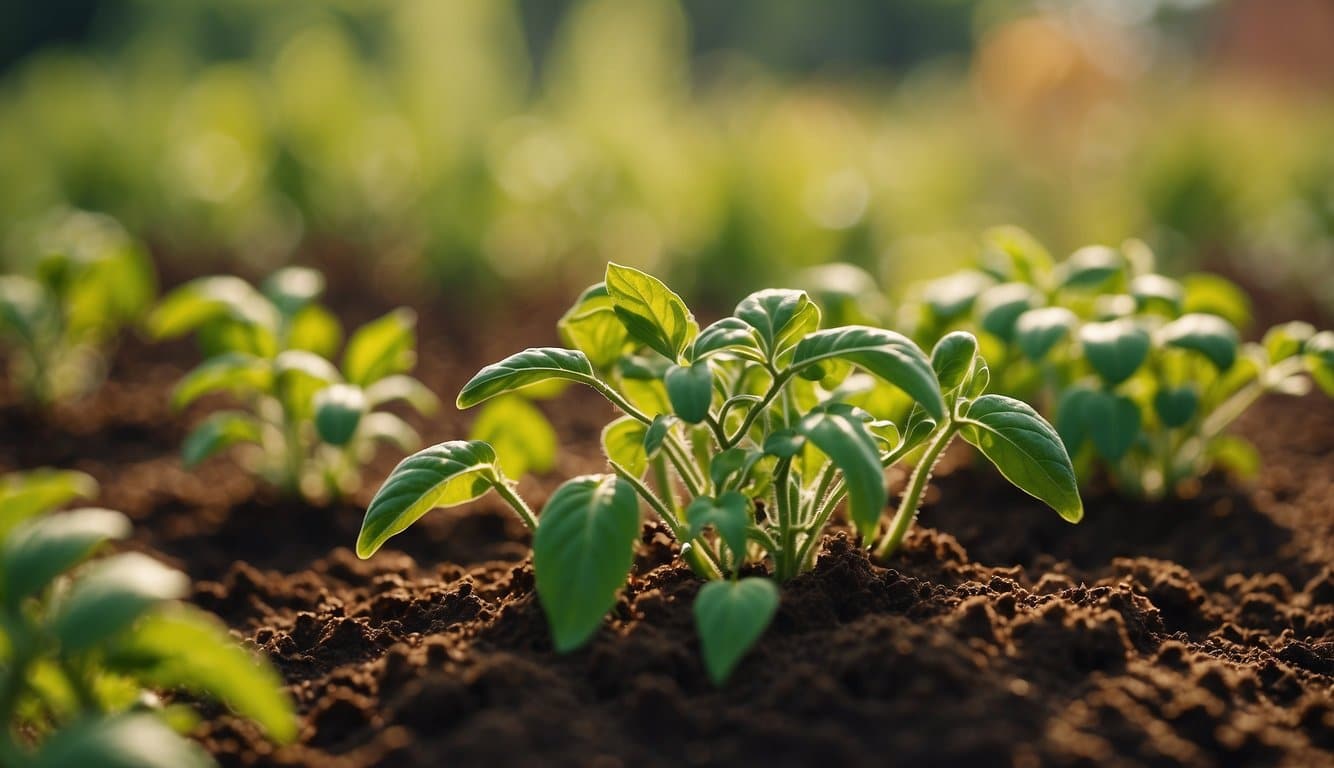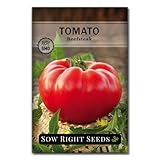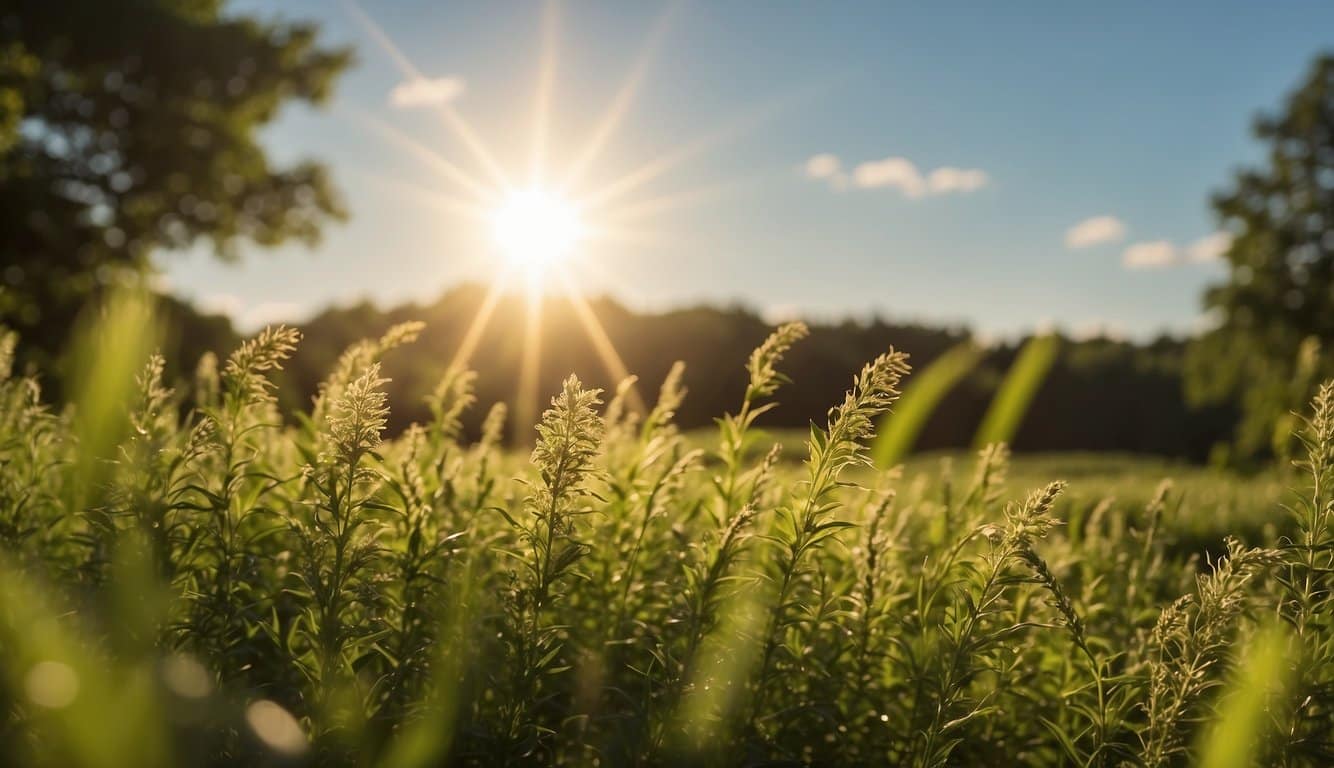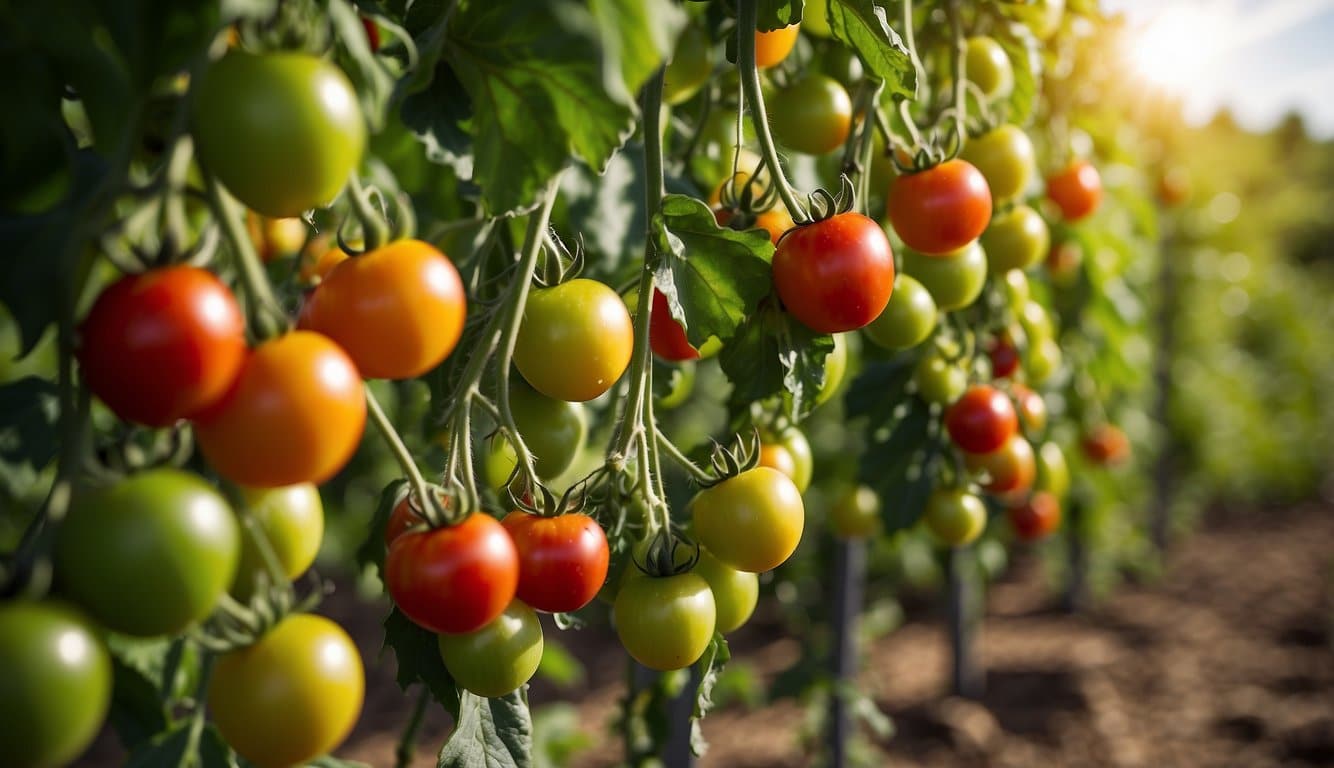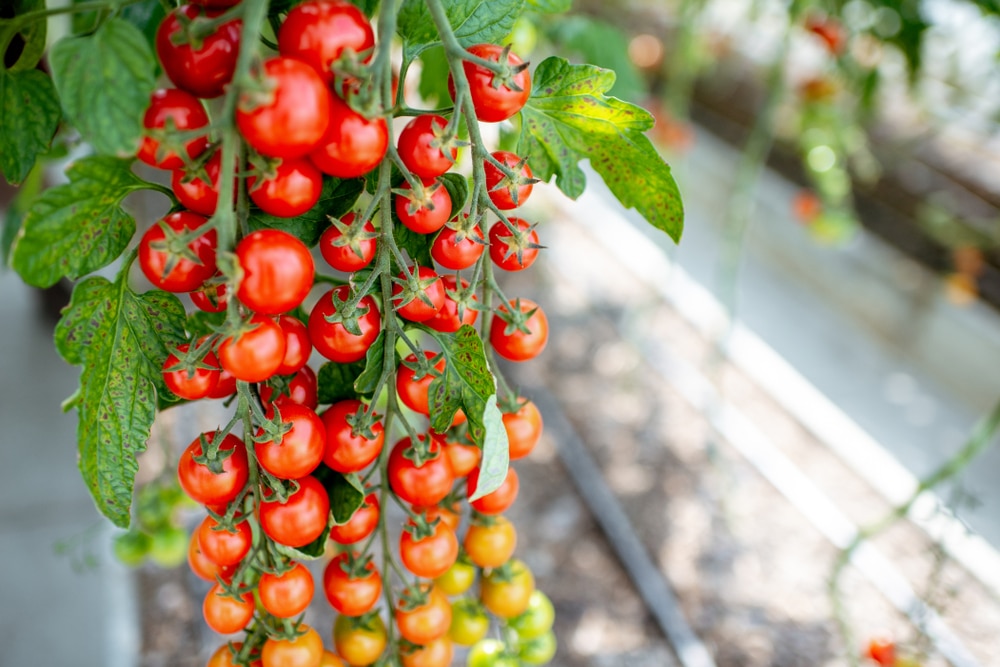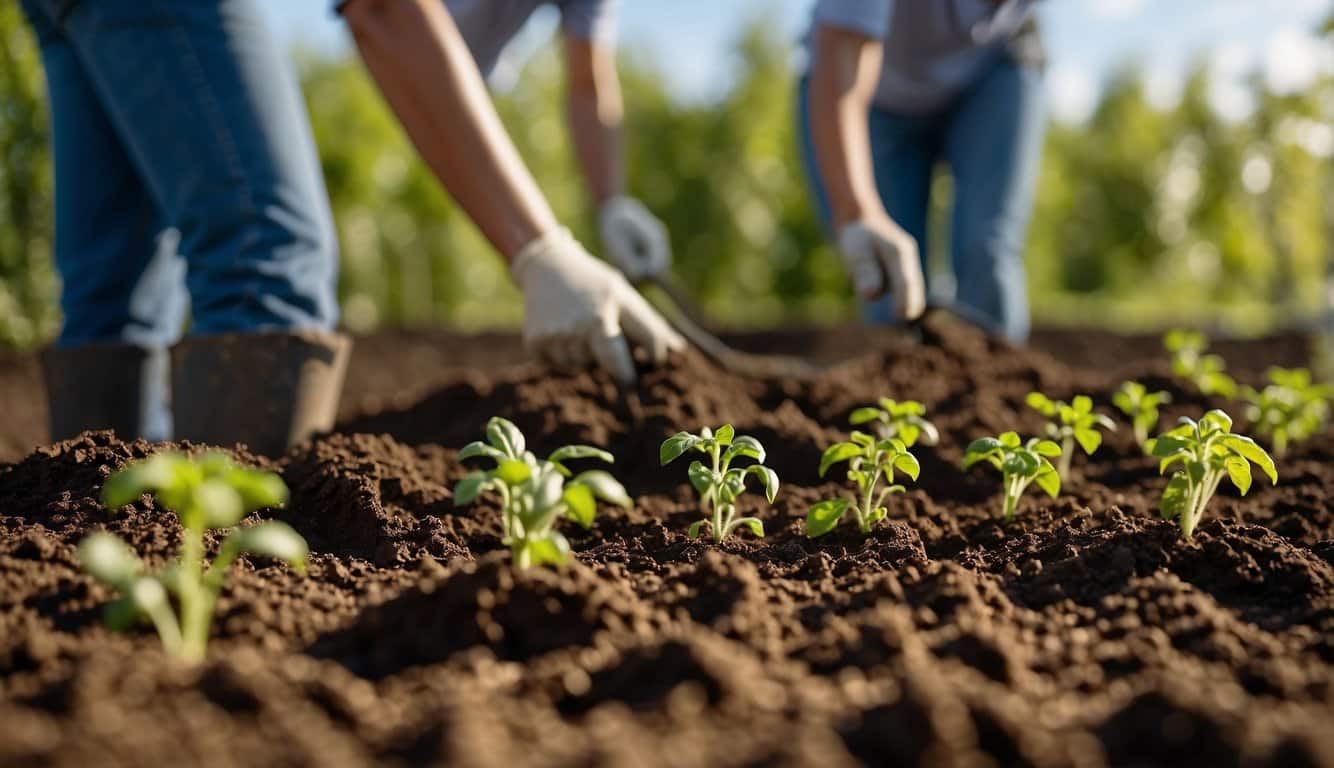| Question | What’s the best time of year to plant tomatoes in Hawaii? |
|---|---|
| Answer | Year-round, with preference for cooler months. |
| More Info |
|
In Hawaii, thanks to the tropical climate, tomatoes can be planted year-round. However, the best results are often achieved when planting is timed to avoid the hottest months.
For most areas, planting tomatoes from late winter to early spring (February to April) and then again in late summer to early fall (August to September) can help ensure that the plants are not subjected to the most intense heat, which can stress them and affect fruiting.
Tomato varieties for Hawaii are abundant, but not all of them will thrive in the state’s climate.
Choosing the right variety is crucial to ensure a bountiful harvest.
Factors to consider include the length of the growing season, temperature, and humidity.
Some of the best tomato varieties for Hawaii include Celebrity, Early Girl, and Sweet 100.
These varieties are known for their disease resistance and ability to produce fruit in Hawaii’s warm weather.
Key Takeaways
- Understanding Hawaii’s climate is key to growing healthy tomato plants.
- Choosing the right tomato variety is crucial for a bountiful harvest.
- The optimal planting months for tomatoes in Hawaii are from late February to early April.
Hawaii’s Climate is Too Hot For Tomatoes (Sometimes)
Temperature Ranges
Hawaii’s climate is characterized by warm and humid conditions that are ideal for growing tomatoes.
The average temperature in Hawaii ranges from 70°F to 85°F, with the highest temperatures occurring during the summer months from May to September.
During this time, the temperature can rise to as high as 90°F, which is perfect for growing tomatoes.
Rainfall Patterns
Hawaii has a tropical climate, which means that it receives a lot of rainfall throughout the year.
The amount of rainfall varies depending on the location, with the windward side of the islands receiving more rainfall than the leeward side.
In general, the rainy season in Hawaii runs from November to March, with the dry season occurring from April to October.
When it comes to growing tomatoes in Hawaii, it’s important to keep in mind the rainfall patterns.
While tomatoes need a lot of water to grow, too much rainfall can lead to problems such as root rot.
Therefore, it’s important to monitor the amount of rainfall your plants are receiving and adjust your watering schedule accordingly.
Tomato Varieties for Hawaii
When it comes to growing tomatoes in Hawaii, selecting the right varieties is crucial for a successful harvest.
The unique climate and growing conditions of the islands require tomato plants that can thrive in the warm and humid environment.
Here are some of the best tomato varieties for Hawaii:
Cherry Tomatoes
Cherry tomatoes are a popular choice for Hawaii because they are easy to grow and produce an abundance of sweet, juicy fruit.
Some of the best cherry tomato varieties for Hawaii include:
- Sun Gold: This variety produces bright orange, sweet-tasting fruit that is perfect for snacking or adding to salads.
- Sweet 100: These cherry tomatoes are known for their high sugar content and intense flavor.
- Yellow Pear: This variety produces small, pear-shaped tomatoes that are sweet and tangy.
Beefsteak Tomatoes
Beefsteak tomatoes are larger than cherry tomatoes and are perfect for slicing and adding to sandwiches or burgers.
Some of the best beefsteak tomato varieties for Hawaii include:
- Brandywine: This heirloom variety produces large, pinkish-red fruit with a sweet, rich flavor.
- Cherokee Purple: These tomatoes have a deep, purple-red color and a sweet, smoky flavor.
- Big Beef: This variety produces large, meaty tomatoes that are perfect for slicing and adding to sandwiches.
Roma Tomatoes
Roma tomatoes are a type of plum tomato that is perfect for making sauces and canning.
Some of the best Roma tomato varieties for Hawaii include:
- San Marzano: This Italian variety is known for its sweet flavor and meaty texture.
- Amish Paste: These tomatoes have a sweet, tangy flavor and are perfect for making tomato sauce.
- Roma VF: This variety produces large, meaty fruit that is perfect for canning or making tomato paste.
Optimal Planting Months
Tomatoes are one of the most popular crops grown in Hawaii, and the best time to plant them depends on the location and climate.
In general, the optimal planting months for tomatoes in Hawaii are between February and May and between August and October.
Early Planting Advantages
Planting tomatoes in February and March allows them to mature before the hot summer months, which can cause stress and reduce fruit production.
Early planting also gives the plants a head start, which can result in a larger harvest.
Late Planting Considerations
Planting tomatoes in August and September allows them to mature during the cooler months, which can result in larger fruit and a longer harvest season.
However, late planting also has its drawbacks.
Tomatoes planted in late summer or early fall may not have enough time to mature before the cooler weather sets in, which can result in smaller fruit and reduced yield.
The optimal planting months can vary depending on the location within Hawaii. For example, areas with cooler temperatures may have a shorter growing season, while areas with warmer temperatures may have a longer growing season.
Additionally, factors such as soil quality, water availability, and pest control can also affect the success of tomato plants.
Soil Preparation and Care
When preparing the soil for planting tomatoes in Hawaii, it is important to ensure that the soil is rich in nutrients, well-draining, and has a pH level between 6.0 and 6.8.
If the soil is too acidic, it can be amended with lime to raise the pH level.
One way to improve soil fertility is to add organic matter such as compost or aged manure.
These materials can be mixed into the soil before planting or added as a top dressing throughout the growing season.
Organic matter helps to improve soil structure, retain moisture, and provide a slow-release source of nutrients.
Another important aspect of soil preparation is ensuring adequate drainage.
Tomatoes do not like to have their roots sitting in water, so it is important to avoid planting them in areas that are prone to flooding or have poor drainage.
If planting in containers, make sure to use pots with drainage holes and use a well-draining potting mix.
Once the tomatoes are planted, it is important to provide them with proper care.
They should be watered regularly, but not overwatered, as this can lead to root rot.
Mulching around the base of the plants can help to retain moisture and suppress weeds.
Tomatoes also benefit from regular fertilization, either with a balanced fertilizer or a fertilizer specifically formulated for tomatoes.
Frequently Asked Questions
What is the optimal planting season for tomatoes in Hawaii’s climate?
The best time to plant tomatoes in Hawaii is from late February to early April. However, it is possible to plant tomatoes year-round in Hawaii as long as you choose a variety that is suited for the climate.
Tomatoes prefer full sun and warm weather, so the summer months are ideal for growing them.
Which varieties of tomatoes are best suited for Hawaii’s tropical conditions?
Determinate varieties like ‘Roma’ and ‘Amelia’ do well in Hawaii’s warm weather. These varieties have a shorter growing season and produce a large yield of fruit.
Heirloom varieties like ‘Brandywine’ and ‘Cherokee Purple’ also do well in Hawaii’s climate.
Can tomatoes be cultivated throughout the year in Hawaii’s unique environment?
Yes, tomatoes can be grown year-round in Hawaii as long as they are grown in a protected environment like a greenhouse or under shade cloth.
During the winter months, tomatoes may need to be grown indoors or in a heated greenhouse.
When should one start planting tomatoes to achieve the best yield in Hawaii?
Late winter is a good time to start growing tomato seeds indoors.
To be most precise, determine the average frost date for your area and count back 6-8 weeks to start your seeds indoors. This will give your plants enough time to mature before being transplanted outdoors.
What are the indigenous tomato varieties found in Hawaii?
There are no indigenous tomato varieties found in Hawaii. Tomatoes were introduced to Hawaii in the 1800s by European and American missionaries.
Are there specific tomato cultivars, like the Kewalo or Anahu, recommended for Hawaiian gardens?
While there are no specific tomato cultivars recommended for Hawaiian gardens, it is important to choose varieties that are well-suited for Hawaii’s warm and humid climate.
Look for varieties that have a shorter growing season and are disease-resistant.
Last update on 2025-06-06 / Affiliate links / Images from Amazon Product Advertising API
